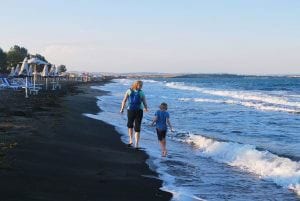The US Food and Drug Administration and Eiger BioPharmaceuticals, Inc. have met to discuss lonafarnib, a drug being investigated as a potential treatment for Hutchinson-Gilford Progeria Syndrome. For more detailed information, you can read the source press release here, at Eiger BioParmaceutical’s website.
About Hutchinson-Gilford Progeria Syndrome (HGPS)
HGPS, also known as Progeria, is a rare, life-shortening condition that causes rapid ageing. Patients with HGPS have an average lifespan of 14.5 years. HGPS the ‘classic’ form of Progeria, but there are multiple other types. The condition is caused by an alteration to the LMNA gene, which codes for the lamin-A protein. Scientists believe that the changes to lamin-A cause the nucleus to be unstable, and cause the premature ageing that is characteristic of Progeria.
Symptoms of ageing associated with Progeria typically appear within the first two years of life. People who are affected by the condition may show low body fat levels, stiff joints, heart disease, hip dislocation, aged skin, reduced growth, and a similar appearance to other children with Progeria, amongst other symptoms. This information was sourced from the Progeria Research Foundation and can be found here.
About Lonafarnib
Lonafarnib is an unapproved, investigational drug that works by inhibiting the enzyme farnesyltransferase, an enzyme that is involved in modifying proteins. So far, lonafarnib has been administered to more than eighty children with Progeria in Phase 1/2 and 2 clinical studies. The US FDA has awarded the drug Orphan Drug Designation for the treatment of Progeria.
The Meeting with the FDA
Eiger BioPharmaceuticals has recently received the minutes from a pre-investigational new drug meeting with the FDA for lonafarnib. The two organisations discussed potential support for a New Drug Application (NDA) filing, including a study that found children with Progeria who took lonafarnib showed a 77% reduction in mortality risk compared to those who did not take lonarnib after two years. Following this discussion, Eiger has announced that is doesn’t plan to carry out more clinical efficacy studies before completing the filing for registration. Eiger is expecting to submit an NDA in 2019.
For more information, you can view the original press release here.







